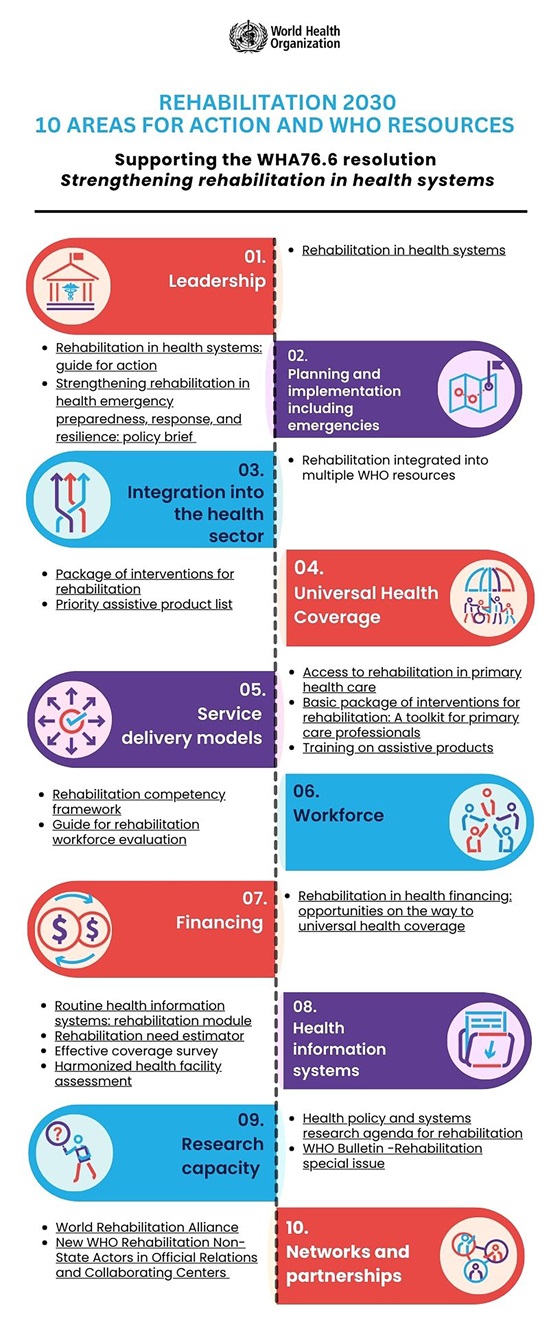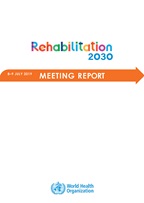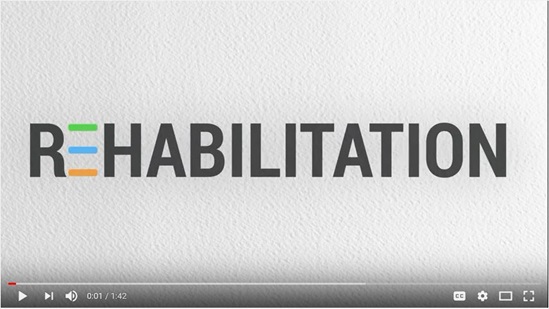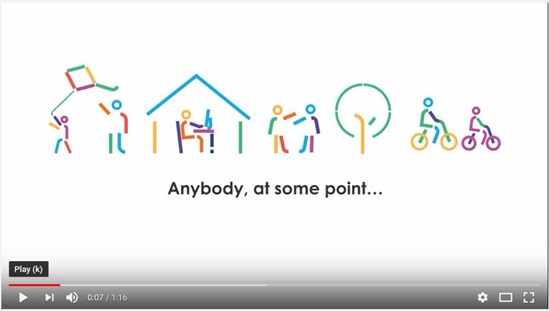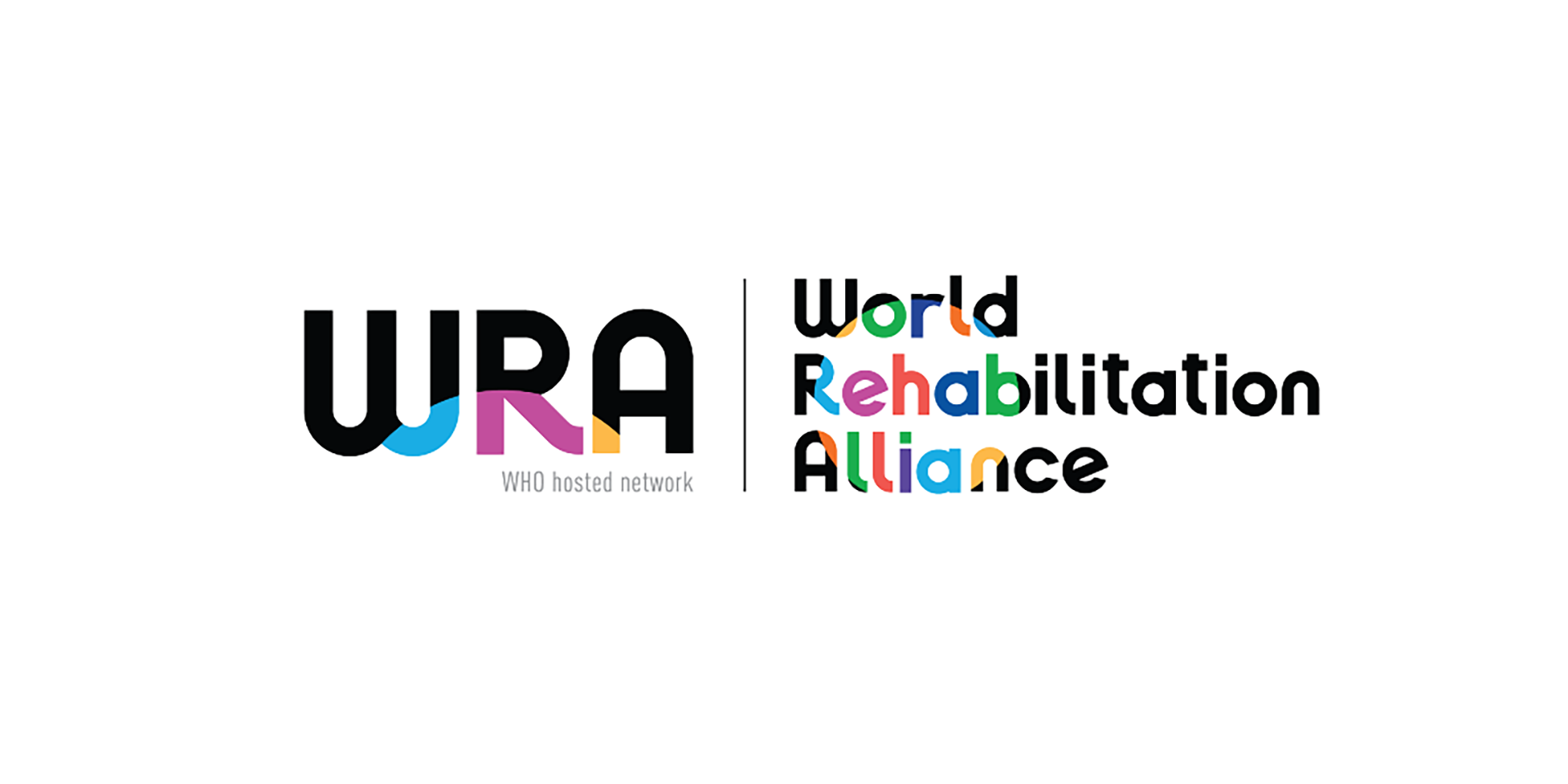

Rehabilitation 2030 initiative
Rehabilitation in the Philippines, 2019.


Publications
Latest publications
All →
Minimum technical standards and recommendations for spinal cord injury management in emergencies
Health emergencies that cause large numbers of traumatic injuries can result in surges of spinal cord injuries (SCI) in a short period of time, that can...

Using the package of interventions for rehabilitation in Georgia
The Package of interventions for rehabilitation (PIR) outlines the most essential interventions for rehabilitation for 20 health conditions, together with...

Integrated care for older people (ICOPE): guidance for person-centred assessment and pathways in primary...
The ICOPE handbook supports health and care workers to put evidence- based recommendations into practice in primary care including community. The handbook...

Framework for the care of acute coronary syndrome and stroke
The Framework for the care of acute coronary syndrome and stroke aims to guide countries in strengthening the care of acute coronary syndrome (ACS) and...

The Regional Rehabilitation meeting report by the WHO Regional Office for Africa highlights critical issues and opportunities in rehabilitation in African...

Rehabilitation Workforce Evaluation: Training Workshop, Hong Kong SAR (China), 27–29 February 2024:...
Traditional approaches to workforce development have focused on supply and public sector requirements, and have largely ignored health labour market dynamics....

The 3rd Global Rehabilitation 2030 meeting was held at WHO headquarters on 10 and 11 July 2023. Since the Rehabilitation 2030: Call for action was launched...

The World Rehabilitation Alliance (WRA) members meeting, held on 12 and 13 July at WHO headquarters in Geneva Switzerland, was the first in-person...


